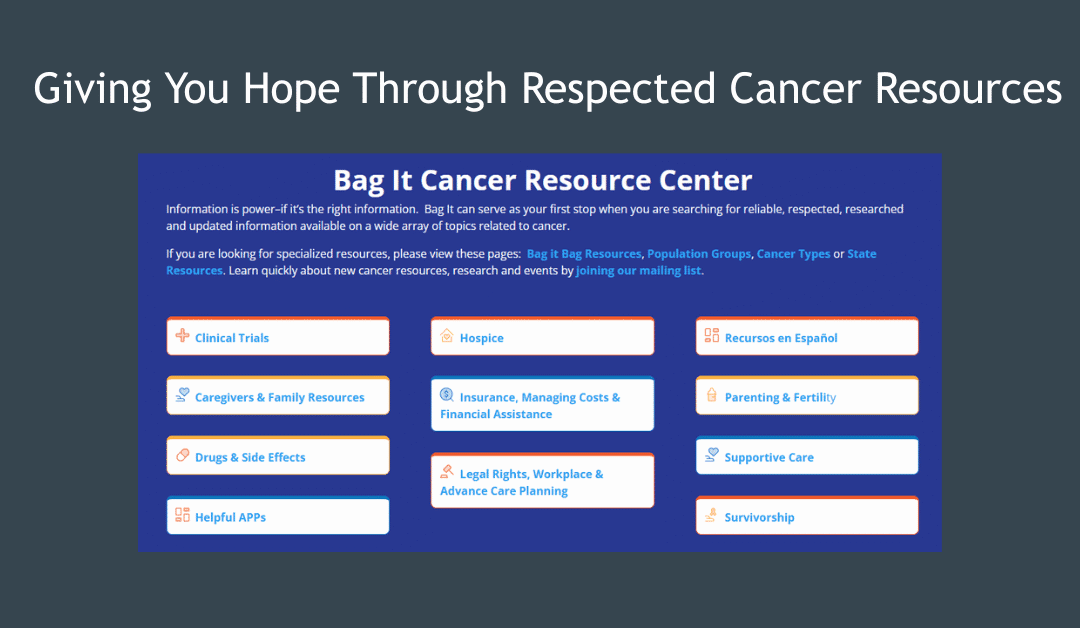
by Bag It Team | Jul 7, 2025 | Educational Articles
Explore the Bag It Cancer Resource Page
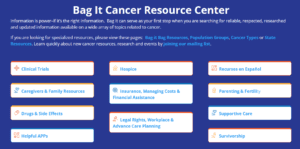 Navigating a cancer diagnosis—whether it’s your own or a loved one’s—can feel overwhelming. That’s why Bag It Cancer is committed to making the journey a little easier with trustworthy, accessible resources all in one place.
Navigating a cancer diagnosis—whether it’s your own or a loved one’s—can feel overwhelming. That’s why Bag It Cancer is committed to making the journey a little easier with trustworthy, accessible resources all in one place.
The Bag It Cancer Resource Center is thoughtfully curated to support patients, caregivers, and healthcare providers at every stage. Whether you’re looking for guidance on supportive care, emotional support, survivorship, caregiver tools, or community connections, you’ll find credible organizations and up-to-date information right at your fingertips.
This free, easy-to-navigate hub includes links to national resources across a range of topics—financial help, clinical trials, mental health, and more. It’s an extension of the support offered through our Bag It Bags, helping you stay informed and empowered beyond the doctor’s office.
We encourage you to visit our Resource Center and share it with anyone who may benefit. At Bag It, we believe that information is power—and hope.
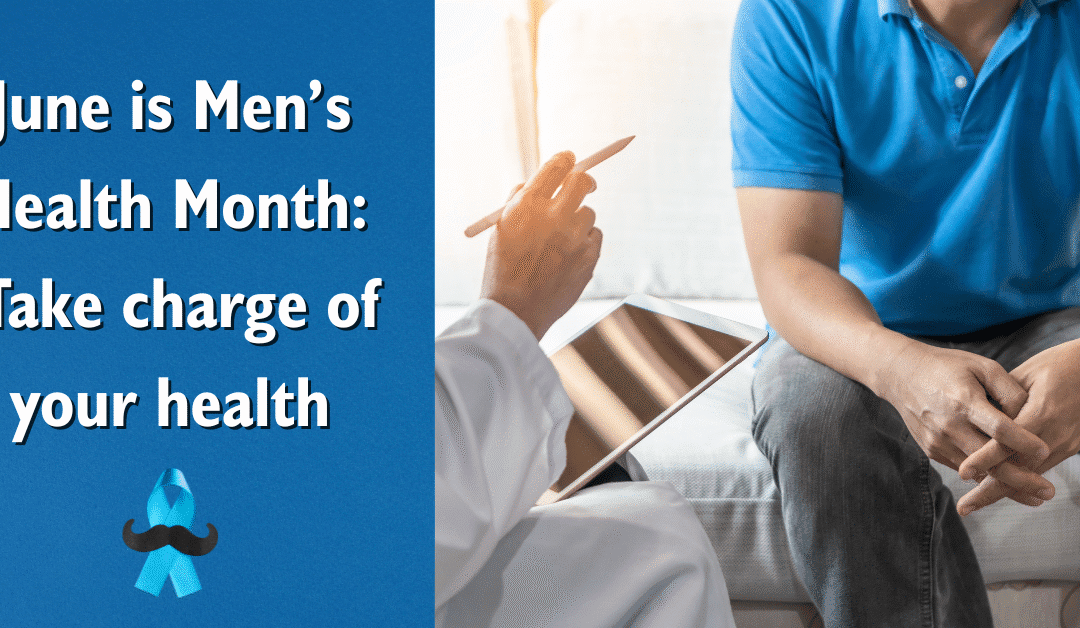
by Bag It Team | May 30, 2025 | Educational Articles
June marks Men’s Health Month, a time to raise awareness about preventable health problems and encourage early detection and treatment of disease among men and boys. At Bag It, we recognize how important it is to empower men with the tools and information they need—especially when facing a cancer diagnosis.
Cancer & Men: Know the Risks
 Men are more likely than women to be diagnosed with cancer and have a higher mortality rate. The most common cancers affecting men in the U.S. are:
Men are more likely than women to be diagnosed with cancer and have a higher mortality rate. The most common cancers affecting men in the U.S. are:
- Prostate cancer
- Lung cancer
- Colorectal cancer
- Bladder cancer
- Melanoma
Early detection is key. Men often delay routine checkups or ignore early symptoms. Regular screenings can catch issues before they become serious.
Tips for Taking Charge of Your Health
- Schedule annual checkups – Even if you feel fine, regular visits can help detect problems early.
- Know your family history – Some cancers run in families; talk with your doctor about any history of cancer.
- Get screened – Discuss appropriate cancer screenings with your provider (especially for prostate, colorectal, and skin cancer).
- Live healthy – Eat well, stay active, limit alcohol, don’t smoke, and protect your skin from the sun.
- Talk about it – Encourage the men in your life to prioritize their health, too.
How Bag It Cancer Can Help
If you or someone you know has been diagnosed with cancer, our Bag It Bag provides reliable, easy-to-understand materials to help patients feel informed, empowered, and organized. Men may not always ask for help—but they deserve support, too.
Let’s break the silence around men’s health and encourage the men in our lives to take action today.
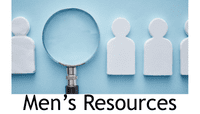
Resources
General Men’s Health & Preventive Care
- Men’s Health Guidelines for Screening
- Men’s Health Month (Men’s Health Network) – Information, health facts, and advocacy resources dedicated to men’s health.
- CDC – Men’s Health – Covers key health risks, preventive steps, and tips for staying healthy.
Support for Men Facing Cancer
- Bag It – Get a Bag – Free resources to help patients feel informed, empowered, and organized.
- ZERO – The End of Prostate Cancer – Support, education, and advocacy specifically for those impacted by prostate cancer.
- COLONTOWN – A patient-led community for colorectal cancer
- GO2 for Lung Cancer – Education, screening & support for lung cancer
- CancerCare – Support for Men – Support groups, counseling, and educational workshops for men affected by cancer.
- Cancer Support Community – For Men – Emotional and practical support specifically geared toward men
Bag It Bags for Specific Cancers
- Prostate Cancer – Bag It and ZERO Prostate Cancer have partnered to develop 2 Bags of essential resources for patients and caregivers impacted by Advanced-Stage and Early-Stage Prostate Cancers.
- Colorectal Cancer –Bag It and Colontown have partnered to develop this Bag of essential resources for patients and caregivers impacted by colorectal cancer (CRC).
- Lung Cancer – Bag It and GO2 for Lung Cancer have partnered to develop this Bag of essential resources for patients and caregivers impacted by Lung Cancer.
Explore other Bag It Cancer-specific Bags.
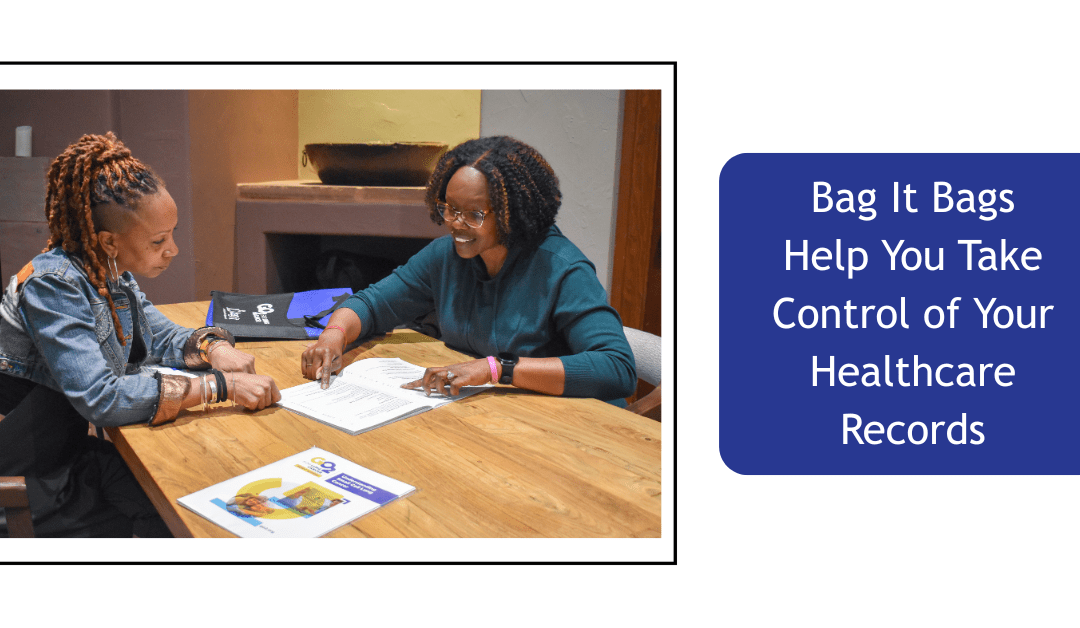
by Bag It Team | Apr 7, 2025 | Educational Articles
Why It Matters & How Bag It Can Help
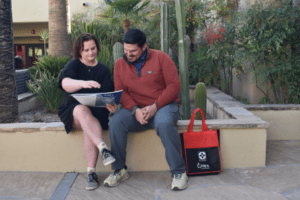 March is Records Management Month—a perfect time to assess how you organize and manage your healthcare records. Whether you’re navigating a new diagnosis, managing a chronic condition, or simply keeping up with routine checkups, having your medical records organized can save time, reduce stress, and empower you to be an active participant in your care.
March is Records Management Month—a perfect time to assess how you organize and manage your healthcare records. Whether you’re navigating a new diagnosis, managing a chronic condition, or simply keeping up with routine checkups, having your medical records organized can save time, reduce stress, and empower you to be an active participant in your care.
Why Keep Your Healthcare Records Organized?
Medical records contain essential details about your health history, including test results, treatment plans, medications, and doctor’s notes. Keeping track of these documents helps you:
- Ensure accurate and consistent care – Having records readily available helps healthcare providers make informed decisions.
- Prevent duplicate tests and procedures – Access to past test results can save time, reduce costs, and avoid unnecessary procedures.
- Monitor progress and advocate for yourself – Tracking treatment plans, medications, and symptoms allows for better communication with your medical team.
- Prepare for emergencies – Quick access to records can be crucial in urgent situations, especially when visiting new doctors or specialists.
How a Bag It Bag Can Help
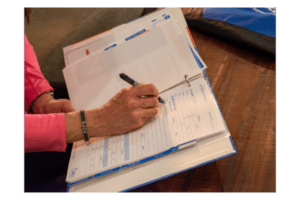 At Bag It Cancer, we understand that managing medical information can be overwhelming. That’s why every Bag It bag includes a My Companion Guidebook, a simple and effective tool designed to help patients and caregivers organize their healthcare journey. Inside, you’ll find:
At Bag It Cancer, we understand that managing medical information can be overwhelming. That’s why every Bag It bag includes a My Companion Guidebook, a simple and effective tool designed to help patients and caregivers organize their healthcare journey. Inside, you’ll find:
✔ Tabbed sections to sort medical records, test results, and insurance information.
✔ Prompted pages for recording doctor visits, questions, and treatment details.
✔ Resources to help you understand your diagnosis, treatment options, and survivorship care.
Whether you’re dealing with cancer or another serious health condition, staying organized gives you confidence and control. This Records Management Month, take the time to gather, review, and organize your healthcare records. And if you or someone you know could benefit from a Bag It bag, visit [Bag It Cancer’s website] to learn more.
For more tips, read this story from our April 2022 Newsletter.
Be Empowered. Be Engaged. Bag It!
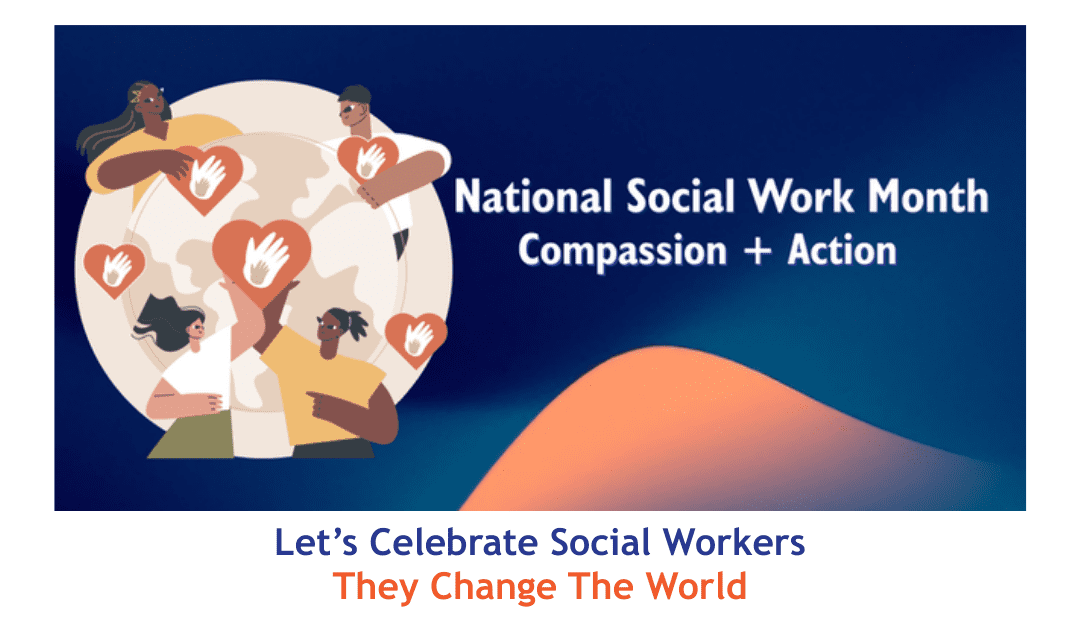
by Bag It Team | Mar 10, 2025 | Educational Articles
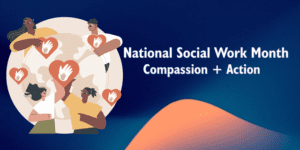 March is Social Work Month and this year’s theme is Social Work: Compassion + Action. Individuals who enter the social work field don’t do it for the fame or glory, they enter the profession because they care. They care about people, policies, and advocacy. Social Work Month allows us to celebrate these special people who often go unseen but are so vitally important.
March is Social Work Month and this year’s theme is Social Work: Compassion + Action. Individuals who enter the social work field don’t do it for the fame or glory, they enter the profession because they care. They care about people, policies, and advocacy. Social Work Month allows us to celebrate these special people who often go unseen but are so vitally important.
You may not realize it but social workers are everywhere! They work in clinical settings, hospitals and medical offices, in schools and community centers, in child protection and legal realms and in public policy spaces. There are over 700,000 social workers in the United States. Despite years of education, training and multiple certifications, social work is also one of the fastest-growing occupations, and these empathic individuals are in high demand.
One branch of social work near and dear to Bag It is medical social work — especially those in the oncology space. Oncology social workers support patients from “you have cancer” into survivorship. They provide assessments, assist with resource navigation, help with life and memory planning, and, most importantly, they offer emotional support. Oncology social workers are there during the hard conversations with providers and remain with you after to offer kindness, empathy and support. They are the middleman between the medical team and the patient and their family. In a space where everyone else is focused on the cancer, the social worker is focused on YOU — your quality of life, your hopes, dreams, and wishes, and your feelings and opinions.
Social work can be an amazingly rewarding profession. Regardless of the setting they work in, they go in each day knowing their goal is to help others, to improve lives and enhance well-being. Working with diverse populations helps you learn more about the communities we exist in, the varying needs and about yourself. There are endless positives to social work. And, simultaneously, it can be one of the most difficult professions. Social workers see the world at its best and at its worst, they see people at their happiest and their saddest, at the beginning of their lives and at the end. There is heartache and trauma in this work because there are barriers beyond our control. But they return to work, to the front lines of the human experience, day after day.
Here are some additional resources about how Social Workers can help you and your caregiver.
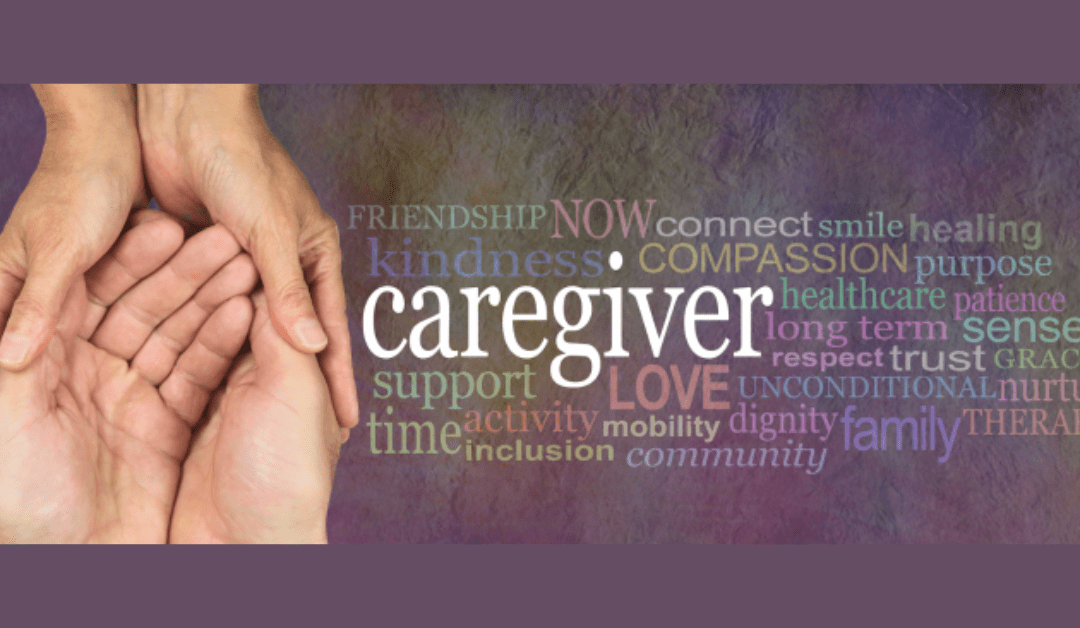
by Bag It Team | Nov 7, 2024 | Educational Articles
By Building a Backup Plan
Caregiving can take a serious toll on physical and mental health. Having a backup caregiver in place is important not only in case something unexpected prevents you from caregiving, but also for times when you may need to step away for a special event, work commitment, or simply a break to recharge. Here’s a guide to setting up a caregiver backup plan.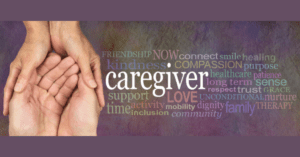
1. Identify the Key Responsibilities to be Covered. List the specific tasks or routines someone would need to take over to help you assess who could potentially fill the role and what skills they would need.
2. Determine Who Could Step In. Think about people in your network—family, friends, or neighbors—who might be a good fit. Professional caregiving services are another option; research a few providers to see which could best meet your needs.
3. Start Conversations Early. Don’t wait until you’re overwhelmed or in an emergency. Doing this now gives everyone involved time to get comfortable with the idea and address any questions or concerns without the pressure of immediate need.
4. Arrange Training and Trial Runs, Once you have someone lined up, organize training and trial runs right away. This helps your backup caregiver prepare, while also allowing your loved one to adjust to a new face in their routine.
5. Share Essential Care Details. Compile a guide for the backup caregiver covering your loved one’s health needs, emergency contacts, daily routines, and personal preferences, etc. The forms in My Companion Guidebook in your Bag It Bag can come in handy for this purpose. Update this information regularly.
Introducing a backup caregiver isn’t just helpful for you—it can also benefit your loved one by offering new social interactions, adding variety to their routine, and reducing reliance on a single caregiver, all while giving you peace of mind when you are away.

 Navigating a cancer diagnosis—whether it’s your own or a loved one’s—can feel overwhelming. That’s why Bag It Cancer is committed to making the journey a little easier with trustworthy, accessible resources all in one place.
Navigating a cancer diagnosis—whether it’s your own or a loved one’s—can feel overwhelming. That’s why Bag It Cancer is committed to making the journey a little easier with trustworthy, accessible resources all in one place.

 Men are more likely than women to be diagnosed with cancer and have a higher mortality rate. The most common cancers affecting men in the U.S. are:
Men are more likely than women to be diagnosed with cancer and have a higher mortality rate. The most common cancers affecting men in the U.S. are:

 March is Records Management Month—a perfect time to assess how you organize and manage your healthcare records. Whether you’re navigating a new diagnosis, managing a chronic condition, or simply keeping up with routine checkups, having your medical records organized can save time, reduce stress, and empower you to be an active participant in your care.
March is Records Management Month—a perfect time to assess how you organize and manage your healthcare records. Whether you’re navigating a new diagnosis, managing a chronic condition, or simply keeping up with routine checkups, having your medical records organized can save time, reduce stress, and empower you to be an active participant in your care. At Bag It Cancer, we understand that managing medical information can be overwhelming. That’s why every Bag It bag includes a My Companion Guidebook, a simple and effective tool designed to help patients and caregivers organize their healthcare journey. Inside, you’ll find:
At Bag It Cancer, we understand that managing medical information can be overwhelming. That’s why every Bag It bag includes a My Companion Guidebook, a simple and effective tool designed to help patients and caregivers organize their healthcare journey. Inside, you’ll find:
 March is Social Work Month and this year’s theme is Social Work: Compassion + Action. Individuals who enter the social work field don’t do it for the fame or glory, they enter the profession because they care. They care about people, policies, and advocacy. Social Work Month allows us to celebrate these special people who often go unseen but are so vitally important.
March is Social Work Month and this year’s theme is Social Work: Compassion + Action. Individuals who enter the social work field don’t do it for the fame or glory, they enter the profession because they care. They care about people, policies, and advocacy. Social Work Month allows us to celebrate these special people who often go unseen but are so vitally important.

Recent Comments